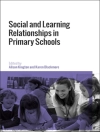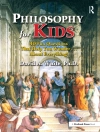The collection attempts to come to term with Robert Park’s legacy. As will become evident, the focus is largely though not entirely on the work rather than the man. Mary Jo Deegan makes use of aspects of Park’s biography to illustrate what she sees as his disavowal of developing sociology as a moral science in the interest of objectivity. The article by Martin Bulmer addresses how Park came to understand what it meant to “do sociology” and Raymond Lee sees Park’s inquisitiveness as the guiding thread linking his journalism and sociology. Lee contends that in terms of sociological research, inquisitiveness was channeled by a theoretical orientation that was open to mixed methods research.
Lonnie Athens and Donald Reitzes address theoretical concerns, particularly as they pertain to Park’s place in relation to the pragmatist tradition, the work of George Herbert Mead and the emergence of symbolic interactionism. Athens offers a systematic comparison of Mead and Park on social action, assessing the strengths and weaknesses of both positions. Reitzes contends that Park’s contribution to social psychology has heretofore been underappreciated, and sets out to rectify that relative neglect. Peter Kivisto, Chad Alan Goldberg and Vince Marotta address aspects of Park’s contribution to race and ethnic relations, reflecting the centrality of this theme to his body of work taken as a whole. Kivisto explores Park’s understanding of assimilation, which has come to be known as the “canonical theory of assimilation.” Goldberg’s chapter engages in a parallel undertaking by exploring Park’s concept of the marginal man and the subsequent career of this concept. Marotta begins by noting that Park’s links to journalism and his focus on empirical investigation led many subsequent commentators to overlook the theoretical sophistication of his work. In his contribution, Marotta compares Park to contemporary critical race theorists. Coline Ruwet analyzes the shifts in his thinking about the city over the course of a quarter century. Specifically, she identifies three stages in the evolution of Park’s thinking. Anthony Blasi rounds out the collection, addressing a topic usually not associated with Park: religion.
Taken as a whole, it will be evident that these articles embrace no singular response to Park, but rather a broad range of responses, generally appreciative but also critical. The goal of this book is not to make a case for or against Park, but rather to encourage readers to consider the virtue of rethinking—and rereading—this major figure in American sociology. If one is left with a sense that we actually still do not know enough about Park the person and Park the sociologist, but that getting to know him on both fronts is important, then this companion will have served its purpose.
Table des matières
Introduction. The Legacy of Robert Ezra Park, Peter Kivisto; Chapter 1. A Twisted Path: Park, Gender and Praxis, Mary Jo Deegan; Chapter 2. Robert Park’s Journey into Sociology, Martin Bulmer; Chapter 3. Beyond “Get the Seat of Your Pants Dirty in Real Research”: Park on Methods, Raymond M. Lee; Chapter 4. The Basic Components of Social Action: Mead versus Park, Lonnie Athens; Chapter 5. Robert E. Park: Neglected Social Psychologist, Donald C. Reitzes; Chapter 6. Robert E. Park’s Theory of Assimilation and Beyond, Peter Kivisto; Chapter 7. Robert Park’s Marginal Man: The Career of a Concept in American Sociology, Chad Alan Goldberg; Chapter 8. Marginality, Racial Politics and the Sociology of Knowledge: Robert Park and Critical Race Theory, Vince Marotta; Chapter 9. The Cities of Robert Ezra Park: Toward a Periodization of His Conception of the Metropolis (1915– 39), Coline Ruwet; Chapter 10. The Impact of Robert E. Park on American Sociology of Religion, Anthony J. Blasi; Chronology; Contributors; Index.
A propos de l’auteur
Peter Kivisto is the Richard A. Swanson Professor of Social Thought at Augustana College, USA, and co-director of the Research Laboratory on Transnationalism and Migration Processes at St. Petersburg State University, Russia. The author of several books, articles and chapters, his recent works include National Identity in an Age of Migration (2016); Solidarity, Justice, and Incorporation: Thinking through the Civil Sphere (coeditor, 2015); and Religion and Immigration: Migrant Faiths in North America and Western Europe (2014).












